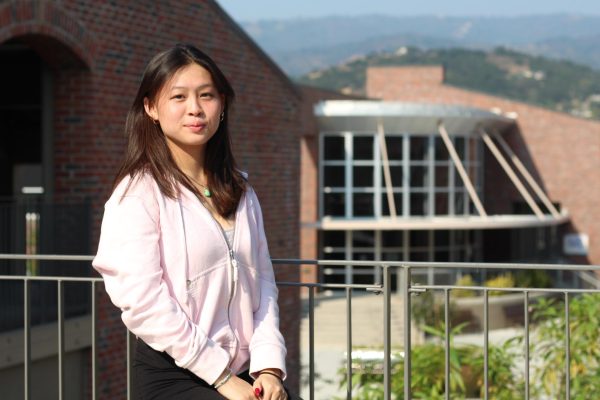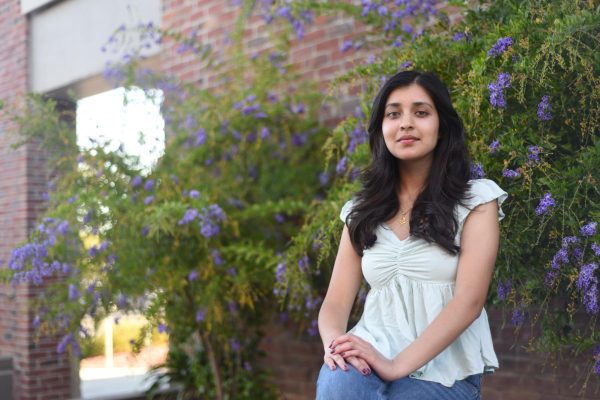When Vinnie Gupta, a parent of two MVHS alumni, was helping his eldest daughter apply for college, the first draft of her college list only consisted of eight Ivy League schools. As a well-educated immigrant from India, Vinnie believed these colleges were best suited for his child. However, after his daughter was rejected from every single Ivy League school, Vinnie realized that his traditional mindset no longer applied to this system. As a result, Vinnie co-founded Upward Path Institute, a program to help guide students in their college application process.
“That was my wake-up call that said this system is so different, especially for immigrant families,” Vinnie said. “There are so many strong kids from families with parents who love them and want to do what’s best for them. That’s why I co-founded this institute nine years back.”
While Vinnie believes that MVHS prepared his children academically, his program aims to help build their people skills — a crucial part of the college application process.
“Overall, I think that MVHS was a good fit for both my kids and gave them diverse experiences academically as well as non-academically,” Vinnie said. “Both of my kids went to competitive colleges — my daughter went to UCLA and my son went to the University of Chicago — and both students I believe, at least academically, were well prepared for these colleges. So overall as a parent, MVHS has very good value for money as well, because we paid exactly $0 to send our kids to MVHS.”
Rachel Wei, the parent of an MVHS alum and a current MVHS student, agrees with Vinnie’s sentiment. Wei’s eldest son is currently attending UC Merced and her daughter, a current senior, is planning on attending Northwestern University. Wei has observed that her two children each were socially different — she explains that her son was more introverted, compared to her daughter who enjoyed more of a social atmosphere. As a result, Wei believes that different students need different support systems.
“I tried to support them outside as much as possible if they needed help with their courses but I cannot deny that every time I saw them struggle I was really nervous on the side,” Wei said. “Sometimes, I tried to hire a tutor outside to help my son because he needed help. But for my daughter, she did not like to have a tutor from outside, she likes to study by herself and try to try to talk to a tutor or classmates to resolve the problem. I think the key difference is both have different social capabilities, so that’s why both of them have different study habits.”
Wei also believes that teachers at MVHS have high expectations for their students and thus keep a more rigorous curriculum and harder classes. Ritu Gupta, a parent of an MVHS alum and a current freshman, adds to this by emphasizing that within MVHS’s rigorous academic environment, a necessary support system is missing for students.
“The teachers can be a little more encouraging because if you are in the top 1% of the class, you don’t need the support,” Ritu said. “But if you’re a little below, that’s when you actually need support from the teacher. It’s to let them know that even though you’re doing badly in a class you’re not ‘losing.’ It’s a harsh word to say but that’s how students feel.”
However, Vinnie believes parents also influence a student’s learning environment as well. He attributes the pressure put on students to the traditional notions that immigrant parents have about grades and their impact on college.
“A lot of MVHS parents come from countries such as India, China, Taiwan, Korea, etc.,” Vinnie said. “Because a lot of these parents came here either for graduate studies or a little later for the job, their core beliefs were already formed when they were in their home countries. So it is important to educate them that the system is very different in America. I’ve been counseling parents for nine years, but I still believe that making that leap to understanding what we call holistic admissions is very hard for most parents to understand. Especially for most immigrant parents, even though highly educated, they have to understand that this is so different and that grades are not the only thing that matters. So our job is to constantly educate them and remind them with different approaches that they need to think differently.”
Based on his experience with Upward Path Institute, Vinnie explains an example of common patterns he’s seen from parents within the community. For instance, he has encountered situations where students have received a few B’s, and their parents contemplate pulling them out of their extracurriculars or sports.
“I can see why a parent thinks that way,” Vinnie said. “But you have to look at holistic student development, and the notion of social-emotional growth of the student. Social-emotional development of the student is a very alien concept to parents, even to someone like me when I came from India and nobody talked about that. I believe that whatever gives a student joy, will allow them to perform well academically. A student who is just not feeling good about themself is not going to do well in their GPA, either.”
Additionally, Vinnie believes that it is also important to take into consideration if a student will be able to handle a rigorous academic environment. He says that an important factor in making sure that a student feels good about themselves is to ensure that they are in the right school for their ability.
“Students should be at a school where they belong at the median level of the overall student population,” Vinnie said. “That means that a student’s academic and peer pressure perspective because at Monta Vista the overall peer group is pretty high, right? If you’re not ready for that competition, it’ll constantly feel like you are on a treadmill that’s angled at 45 degrees, and at some point, you’ll get exhausted. If you get exhausted, you start losing motivation and hope. On the other hand, if you go to a school, where it’s like a walk in the park, that means that things are too easy for you. That’s not good either. Because then you possibly are not pushing yourself at all. You’re not building any muscle.”
Ritu shares her children’s academic experience as they both fared differently at MVHS. She also believes that at MVHS, students handle the academic environment differently.
“Some kids feel a lot of pressure from the school and some kids also put great self-imposed pressure on themselves,” Ritu said. “My older daughter did OK at school and I think she survived that pressure from school. But my younger daughter has self-imposed pressure on herself about her expectations. I also find that kids who are going to other schools seem to be enjoying their high school experiences more. My elder daughter felt that at Monta Vista she experienced the worst four years of her life, because she was just locked up in her room studying, and I see my younger daughter entering that phase as well.”
Vinnie says that parents can help decrease the pressure on students by emphasizing that grades are not the only thing that matters. He explains that parents should educate their kids about the holistic process of college and how parents should tell their children to explore and do other things that they enjoy.
“Universally, I think that MVHS parents love their children,” Vinnie said. “They’re doing the best they can to work really hard to give you guys what you want, but I think the information gap is just tremendous. I think we have to inform parents and educate them that they need to look at holistic student involvement and constantly ask students, how are you doing, instead of just asking for their GPA.”











